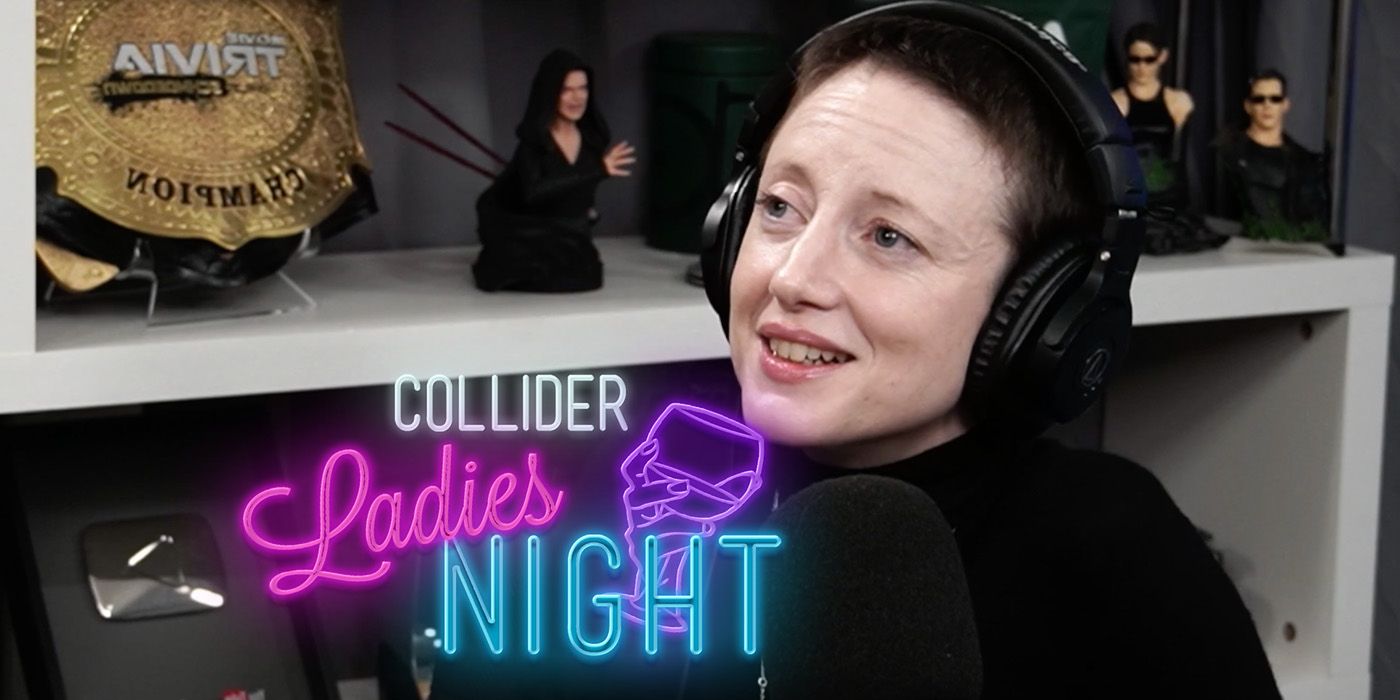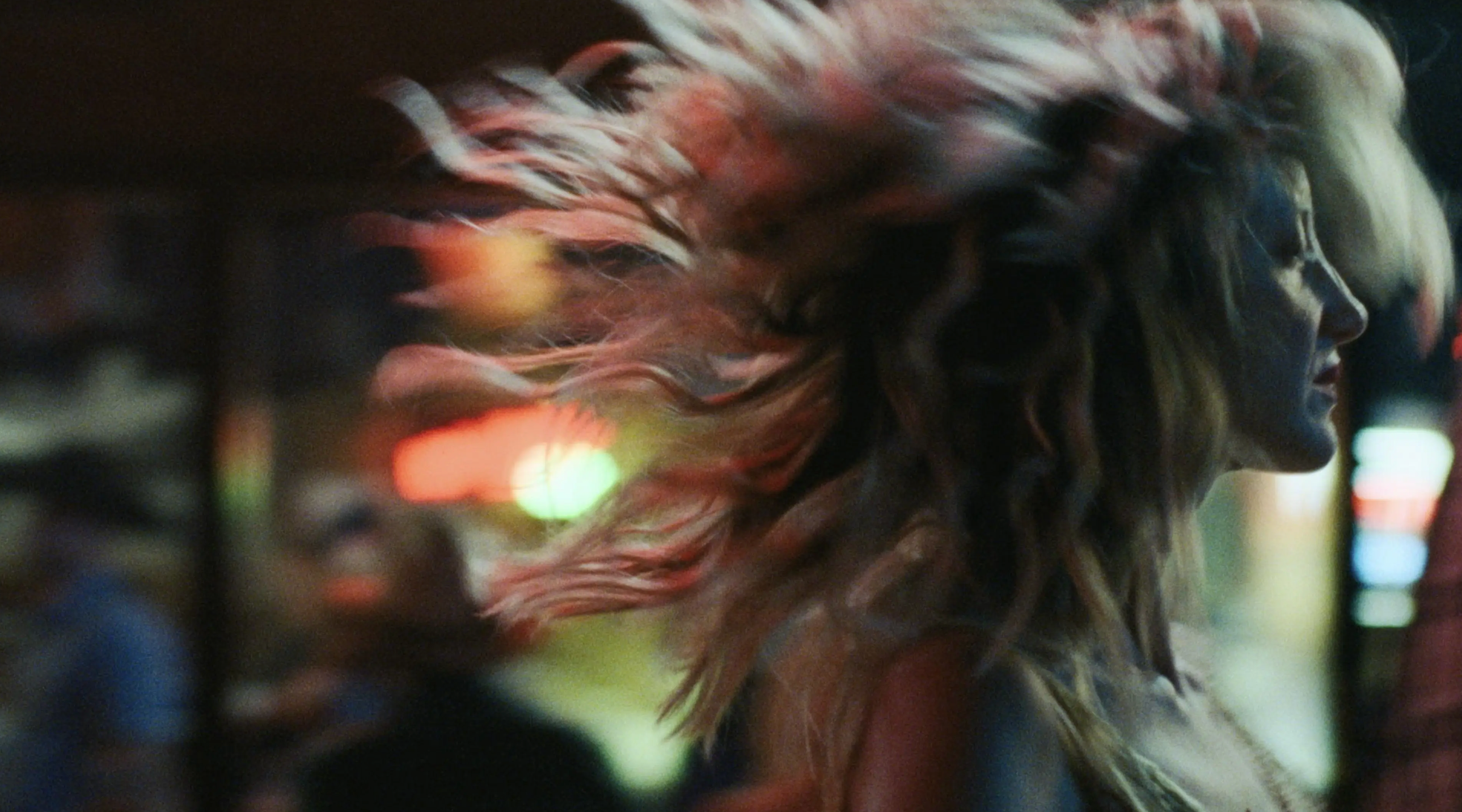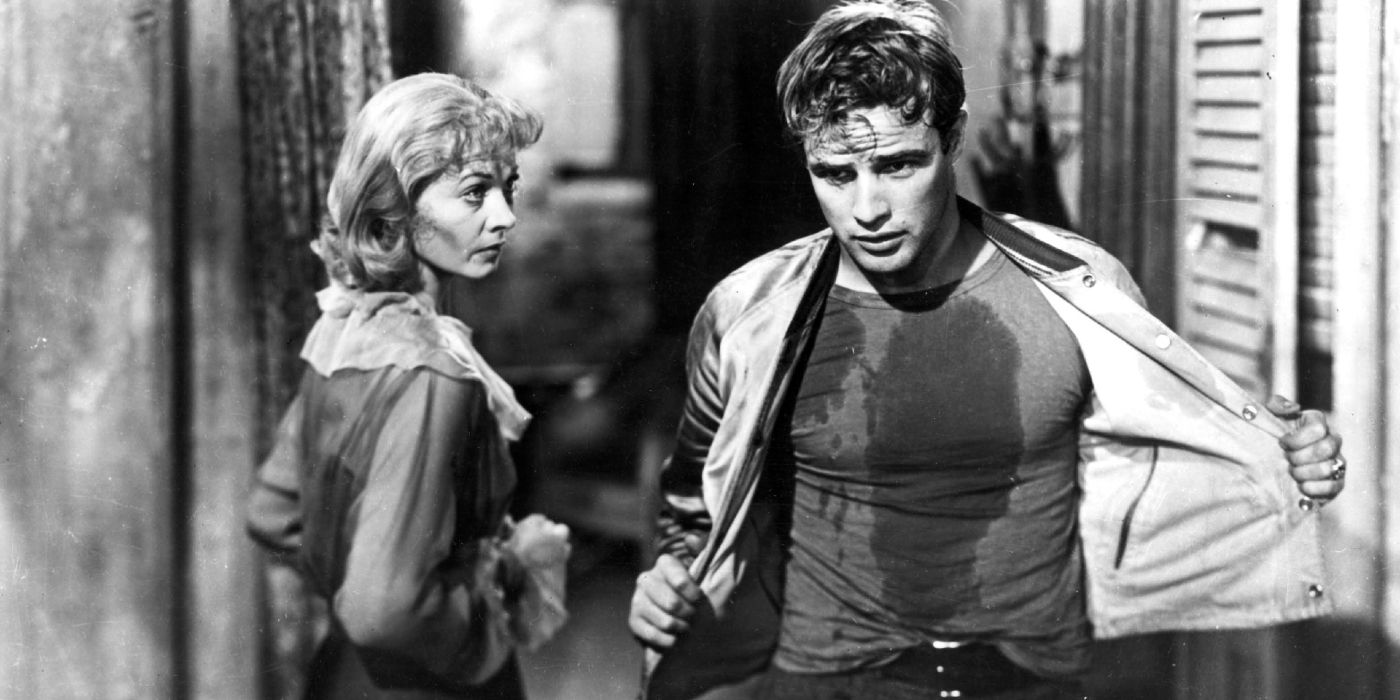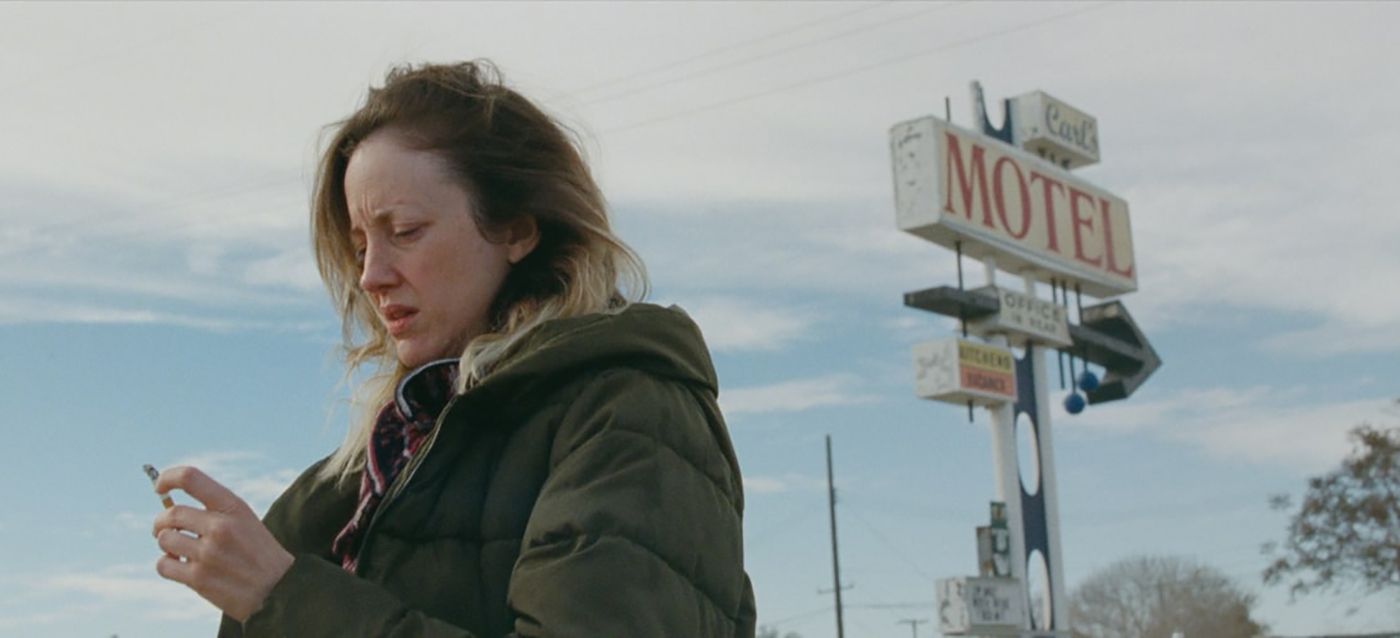Andrea Riseborough is one of the most exciting creators out there right now. If you can’t get behind that statement, odds are, you haven’t seen enough of her one-of-a-kind filmography. From Birdman to Battle of the Sexes, Black Mirror, Mandy, Possessor, and then some, Riseborough is consistently taking on bold projects, completely vanishing into her roles, and showing a willingness to take her work to the nth degree to bring the trustiest version of her characters' experiences to the screen. All of that is on display yet again in one of her latest releases, To Leslie.
Inspired by screenwriter Ryan Binaco’s own mother, To Leslie stars Riseborough as the title character, a woman living in West Texas who hits big playing the lottery. While the initial hope is to put that money towards making a better life for her son, Leslie succumbs to her struggle with alcoholism and winds up homeless. Having hurt the people she’s closest to repeatedly, Leslie’s left with no one to turn to until she meets Marc Maron’s character, Sweeney, a local motel clerk who decides to give Leslie a chance.
Riseborough’s work in To Leslie is, by far, one of the best performances of 2022. Given how I feel about that film and her entire body of work, she’s been a Collider Ladies Night dream guest. Now, in celebration of her Independent Spirit Award nomination for To Leslie, that dream becomes a reality. Fifty minutes isn’t enough to get through Riseborough’s entire resume, but we did cover a good deal ranging from her earliest inspirations to her collaborations with Christian Bale and Nicolas Cage, all paving the way to one of her best performances to date, her work in To Leslie.
As with every Collider Ladies Night, the chat began by asking Riseborough for the particular film, performance, or personal experience that first made her say, “I have to be an actor.” But, in Riseborough's case, that question doesn't quite align with how she views her craft. She explained:
“There's never been a point in my life where I’ve thought, ‘I absolutely have to be an actor.’ I've been doing it since I was very, very young. Not professionally, but I've been doing it since I was very, very young. And I've been doing it all of my life pretty consistently. Took a few breaks. I took two years off after Birdman, and I took two years off somewhere around 17 to 19, but since I was about nine I've been doing theater and anything I can, and then trained and then started making a lot of film. So it’s not been a question I've had time to address, if you know what I mean. [Laughs] It just sort of happened. But, I feel pretty clear that this is definitely what I'm supposed to be doing.”
Even though there wasn’t a particular film that first sparked the itch to act, Riseborough did go on to emphasize how taken she was by Marlon Brando’s work in A Streetcar Named Desire:
“I think the first film performance that I couldn't breathe when I saw it was Marlon Brando’s Stanley Kowalski. That was such a meeting of two different worlds of artistry between Vivian Lee and her incredible performative, emotive style of acting and Brando's ability to suck everything in the room toward him, and to see those two things coexisting and both being as utterly brilliant and effective in two totally different ways. I’m a huge, huge, huge Vivian Lee fan, but something about Brando's ability in that particular role, there’s not a false — I don't want to speak in the negative because that's not very productive. I don't want to say there's not a false note because you're talking about negative space. I think what it is is it's just so true. That was something that spoke to me. And I'm a really crap liar. Like crap, crap, crap. Can’t lie to save my life. It's maybe my only strength in my profession. I'm good at imagining someone's life and then imagining they may walk differently, imagining that they’re literally from a different walk of life, they have a different rhythm and pace and voice. Internally they're different than I am. It feels different to be them.”
Not only are all of Riseborough’s performances oozing with authenticity, but she also exudes unparalleled fearlessness. How exactly does one first discover their limitless ability to tackle challenging subject-matter? Here’s what Riseborough said:
“There’s been a couple of those moments. You have them all the way through life, don't you? But those moments where you’re so lost in something that you realize it's magical and it's never gonna happen again. It's a very special moment. One of them earlier on was playing Miss Julie at the RSC in the Peter Hall Company. And Isabella in Measure for Measure. Both of those roles sort of at the same time. And then another was recently on a film called Please Baby Please, which I was mentioning earlier, which is a film directed by Amanda Kramer who I think is a very strong voice coming through in film. I played a character called Suze who sort of slowly turns into Marlon Brando, really. It's set in the 50s. It's written in this lyrical, poetic, beautiful way. It's like a West Side Story without songs. It's incredibly camp. That character, Suze, the transition from female to not being defined at all by gender was funny and ferocious and wild and untethered, and she’s a really untethered beast. And there were moments in that where, after the fact, because if it happens in the middle of a performance where you have that moment where you think, ‘This is going terribly well,’ you know it's the worst thing you've ever done. So, after the fact, after having had played those scenes, that feeling of coming out of it and looking back and thinking, ‘Oh, we all went there,’ that's kind of amazing. We all went there.”
Given the fact that Riseborough’s lengthy list of films and shows includes a significant amount of industry icons, I was especially excited to ask her a go-to Collider Ladies Night question; of all of her past co-stars, whose process aligns with hers the most? Here’s what she said:
“Probably most similar, Christian Bale. Making Amsterdam with Christian, we’d done a huge amount of preparation beforehand on our characters and that's the way that David [O’Russell] works, but I knew him as Bert. Beatrice knew him as Bert. When I stepped on to set, it felt like there was history and complication. It was a huge sense of ease because he was already there. I felt very clear about being there. When I say ‘there’ I just mean in doing it, in your character. What's wonderful about that rather than talking in depth objectively about how brilliant you're all gonna be or endlessly talking through the scenes in a way that's academic rather than practical is that you have so much more time. There's so much more time to just exist as the character and to stand next to your husband, your estranged husband, and to feel him and see him and know him and feel your history together. And a very huge sense of quiet, actually. And another person I really, really felt comfortable with was Nicolas Cage because I don't like talking much [laughs], which is really weird. Picked totally the wrong job. But in my quiet moments, I don't like talking much, and he’s a man of very few words when he's not in his character because he needs that time to just sit. He and I would sit a lot. We made a film called Mandy together, and we'd sit a lot next to each other just in total silence, which I found very comforting.”
Given the short shooting schedule on To Leslie, there likely wasn’t much opportunity to sit and share quiet time. On top of that, given the arc and range of emotions Leslie experiences and her big personality, the character kept everyone on their toes. Riseborough pointed out, “Leslie's not the most stable character to be around for three or four weeks.” She continued:
“I feel like everybody who made this film has had a Leslie in their life or has orbited one or felt like they hold characteristics of Leslie and identify with her in many ways, or have had both experiences, and it was clear when we finished that film that it had been like a marathon for us all because to be around her, as you can imagine — and not just the amount of times we see her having an outburst, but over and over and over and over again because on a film set you're seeing it way more times than that. Although, to be fair on this film, a lot of the film is the first or second take because of the time constraints and because of the amount of film we could afford. [Laughs] But it was clear that when we came out of the experience, every single person on the film had been on a journey and had come out at a different place than they came in, which is true of every piece, but it was particularly true of this piece.”
Throughout the film, Leslie struggles with alcoholism, lies to those closest to her, and snaps at innocent parties, but she also has moments of great warmth, ambition, and appreciation for those who stand by her. Given that wide range of behavior, I asked Riseborough if she had an anchor for the character, something that ensured all of her decisions and actions were based in some sort of consistent truth no matter her headspace. Here's what she said:
“I think there's an emptiness inside of Leslie that can't be filled, that can't be satiated. There’s a hollowness. But there is one thing that can drive that. There’s one thing that can sort of occupy that hole and it's this love that she has for her son. And so I suppose those two places, hopelessness and really hopefulness, those two places are the spaces where she spends most of her time internally. And it's quite a massive pendulum swing, of course, because when you don't have a community or support or you've pushed everybody away and you're trapped in a shame cycle where you're hurting the people that you love and then in order to numb the pain of having hurt them, you're drinking more, and it just goes on and on, you find yourself internally in a place of total extremes all the time rather than having any sense of consistency. Also, Leslie looks at the world with a sort of vicious resentment, and that’s quite a difficult place to be in for such a long time if you know what I mean, psychologically.”
Tackling that challenge paid off big time. Yes, it’s wonderful that the film scored Riseborough that Spirit Award nomination for Best Lead Performance, but she’s more focused on the fact that that nomination means more people will discover the film:
“I was promoting four films this year, two of which had huge platforms behind them, a lot of muscle. This is not one of those films. [Laughs] We've done a lot of legwork ourself to basically share the film with the world. Actually, I wouldn't change that for the world. It's been so rewarding and such an incredible experience to have so many personal conversations with people about this film and how it's affected them in so many different ways. I think that the real win for the film is that the nomination brings it to more people. It feels wonderful in every way for it to be recognized, for the performance to be recognized, for Ryan who really wrote this film as a love song to his own mother who sadly is no longer with us and gave her in this film what she couldn't really have in life. Not in a saccharine way and not in a sensational way. It gives you faith. Of those four films, this performance in this film that had really very little financial backing behind it and all of the rest of it, and still doesn’t, is being recognized in that way. It gives you hope.”
To Leslie can be a very tough watch, but Riseborough is right; it’s an extremely hopeful piece. At times for Leslie, she appears to have hit rock bottom and it may seem like the end, but it’s not. “I think [the movie] may just shift the perspective from a reckoning being a finality, some sort of sad finality, to a reckoning being a huge opportunity” Riseborough added, “The reckoning is the beginning of the next chapter if you're able to get through it.”
Looking for more from Riseborough on her journey in the industry to To Leslie? Be sure to watch our full 50-minute conversation in the video at the top of this article, or you can listen to it in podcast form below:





